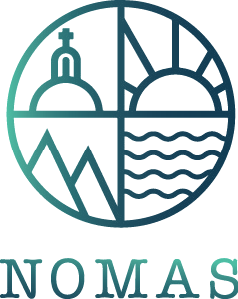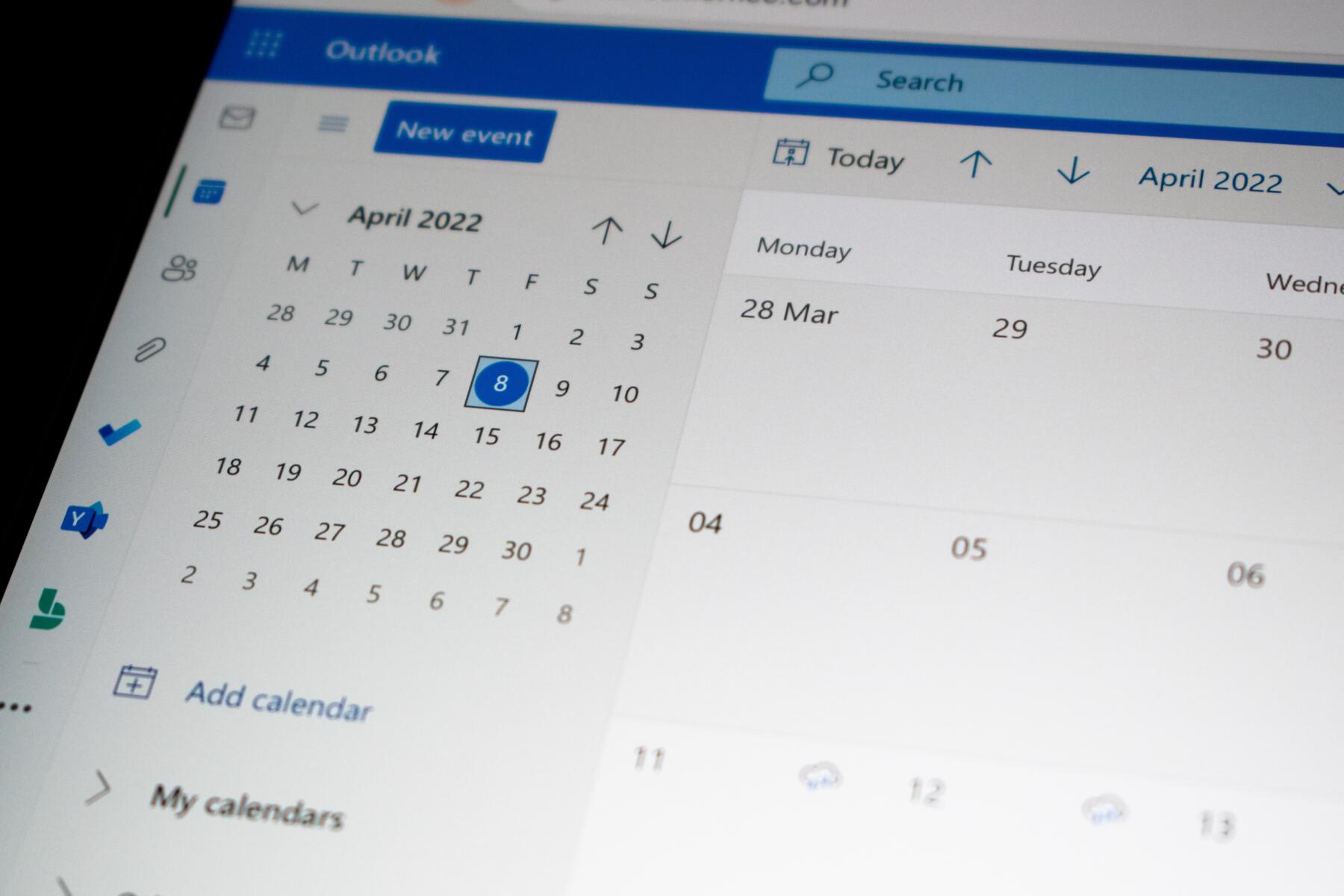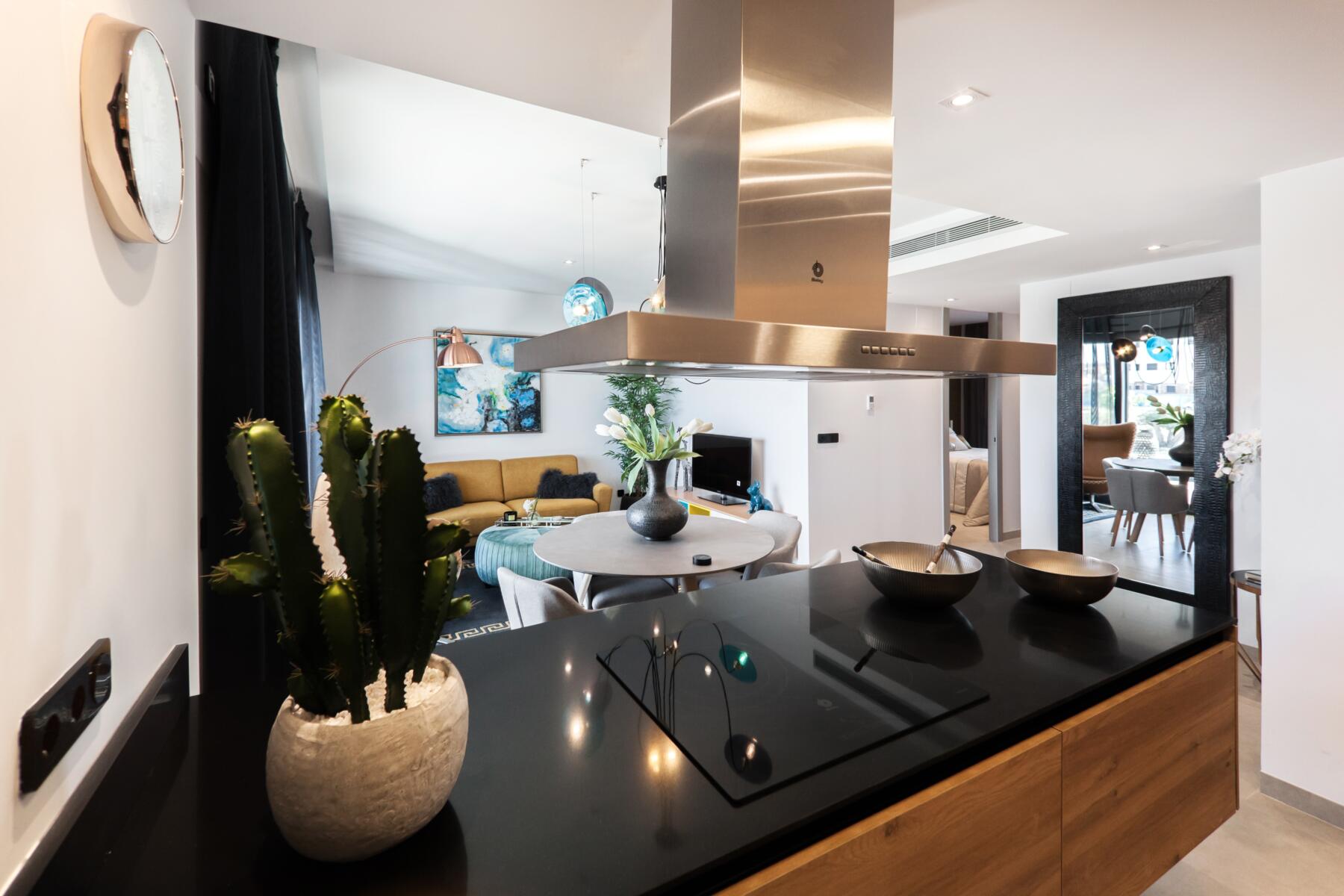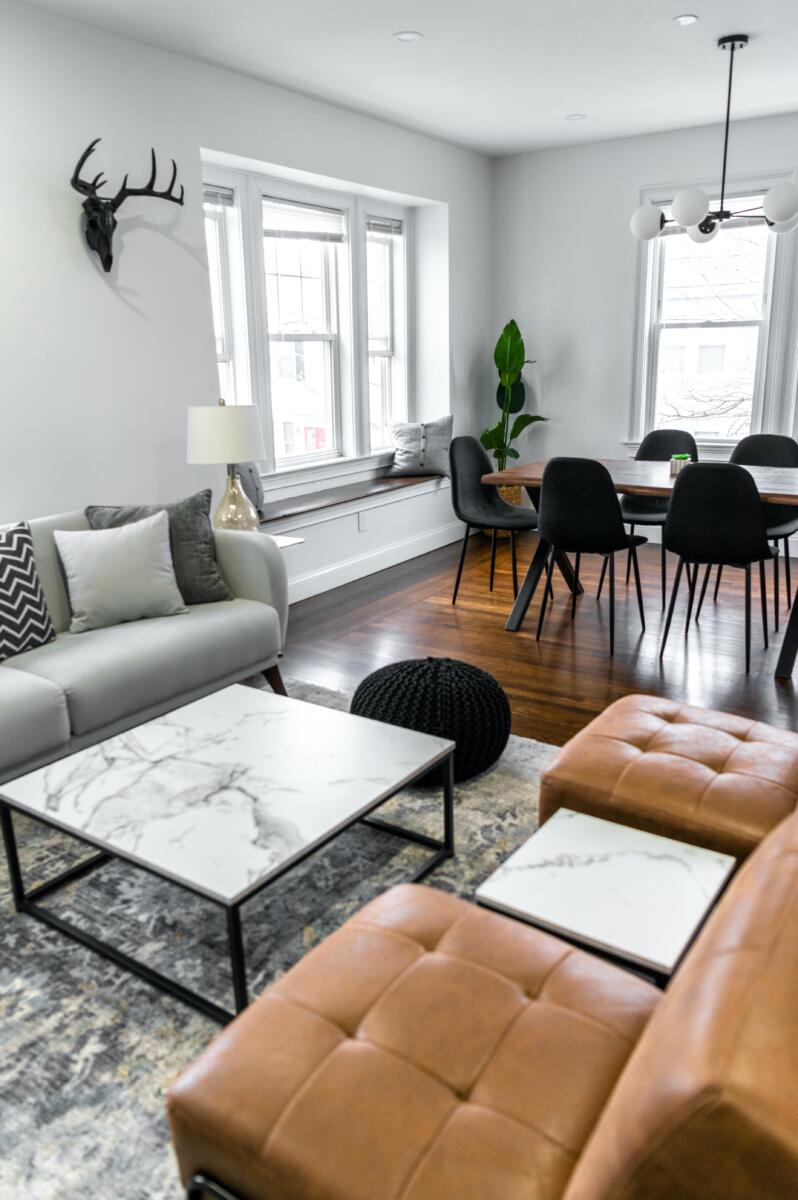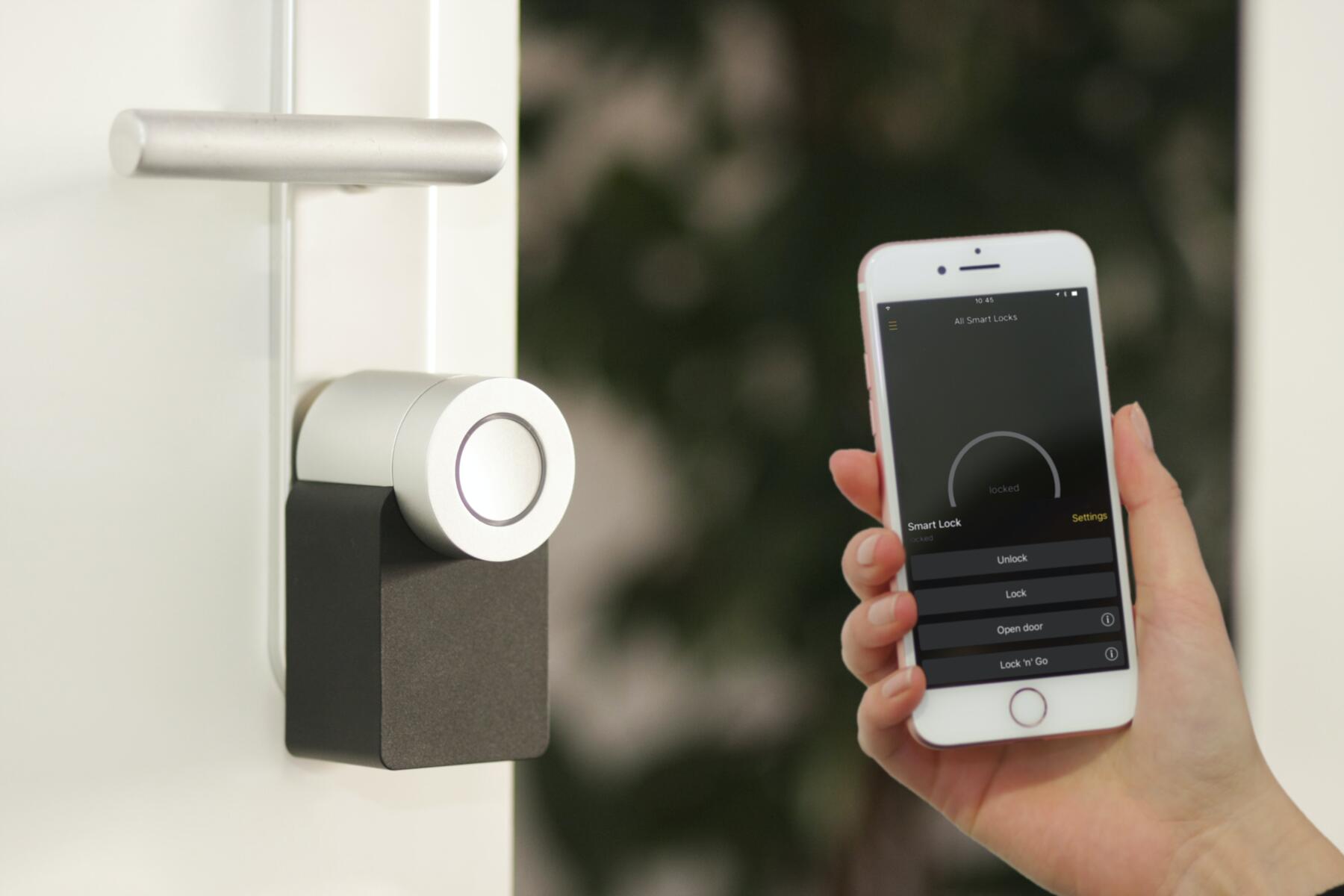Airbnb Booking Strategies
Navigating Seasonal Peaks and Off-Peak Periods: Airbnb Booking Strategies
In the dynamic world of Airbnb hosting, understanding how to navigate seasonal peaks and off-peak periods is a key factor in maximizing your property's occupancy and revenue throughout the year. Whether it's the summer travel rush or the quieter winter months, having a flexible and adaptable booking strategy is essential to ensure consistent bookings. Let's explore some effective Airbnb booking strategies to help you navigate these seasonal fluctuations successfully.
- Dynamic Pricing: Embrace dynamic pricing tools to adjust your rates based on demand. During peak seasons, increase your prices to capitalize on the high demand. Conversely, during off-peak periods, offer discounts to attract more guests. Dynamic pricing tools like PriceLabs, Wheelhouse, and Airbnb's Smart Pricing can automatically adjust your rates based on factors like local events, occupancy, and demand.
- Themed Promotions: Create special promotions or themed packages for different seasons or holidays. For instance, during the summer, you can offer "Summer Getaway" packages that include beach gear, while during the holiday season, you might provide "Winter Retreats" with festive decorations and complimentary hot cocoa. These themed promotions can attract travelers celebrating specific events and enhance the guest experience.
- Off-Peak Renovations: Make the most of off-peak periods by conducting maintenance and renovations. This is the time to address any wear and tear, update your property's decor, or tackle larger projects. Ensuring that your property is in excellent condition for the next high season is essential for impressing guests and enhancing their overall experience.
- Target Different Audiences: Shift your marketing and property descriptions to cater to different traveler segments during off-peak periods. For example, during the slower times, you can focus on attracting couples looking for romantic getaways, solo travelers seeking solitude, or weekend vacationers. By understanding the unique needs of these segments, you can tailor your listing to appeal to a broader audience.
- Local Events: Stay informed about local events, festivals, and conventions that might draw visitors during specific times of the year. Adjust your pricing and availability to coincide with these events. Whether it's a music festival, a business conference, or a cultural celebration, being aware of local happenings can help you capture a different market segment.
- Long-Term Stays: Encourage longer-term bookings during off-peak seasons by offering discounts for extended stays. Highlight the benefits of an extended stay, such as cost savings and the opportunity for guests to immerse themselves in the local culture. Business travelers and digital nomads often seek extended stay options.
- Cross-Promotions: Collaborate with local businesses, restaurants, or tourist attractions to offer joint packages that include your Airbnb property. For example, partner with a nearby spa to create a "Relax and Rejuvenate" package. Cross-promotions can attract guests during both peak and off-peak times by providing added value through local experiences.
By implementing these adaptable booking strategies, you can maximize your property's occupancy and revenue year-round. It's important to stay flexible, monitor local events and trends, and adjust your approach accordingly. With a well-rounded strategy in place, you can effectively navigate the seasonal fluctuations of the Airbnb market and ensure a consistent flow of bookings throughout the year. Whether it's the high season or the quieter months, your property can remain a sought-after destination for travelers seeking unique and memorable experiences.
Global Trends in Airbnb
Analyzing Global and Local Trends in Airbnb Management: A Focus on the Greek Market
The vacation rental market, particularly through platforms like Airbnb and Booking.com, has witnessed a significant transformation in recent years. This article will delve into the evolving trends in Airbnb management, both on a global scale and with a special focus on the Greek market. As the travel landscape adapts to changing consumer preferences and technology, property owners, managers, and hosts must stay attuned to these trends to succeed in the dynamic world of short-term rentals.
Global Trends in Airbnb Management
- Professionalization of Hosts: Airbnb is no longer just a platform for occasional hosts. It has evolved into a marketplace where professional property managers and businesses can thrive. Successful management increasingly requires a professional approach, including effective marketing, pricing strategies, and customer service.
- Dynamic Pricing: With advanced software and dynamic pricing tools, property managers can optimize rates based on supply and demand, local events, and seasonal trends. This data-driven approach helps hosts maximize their rental income while remaining competitive.
- Technology Integration: Property management systems (PMS) and channel managers have become essential tools for hosts, enabling them to streamline operations. Integration with these technologies allows for efficient property listing management, reservation handling, and communication with guests.
- Guest Experience Enhancement: Providing a unique and memorable guest experience is a top priority. Hosts are investing in high-quality amenities, smart home devices, and personalized services to cater to travelers' increasing expectations.
- Sustainability Initiatives: As eco-conscious travel gains momentum, Airbnb hosts are adopting sustainable practices. Implementing energy-efficient measures, waste reduction, and eco-friendly amenities can attract responsible travelers and improve the overall appeal of a property.
Local Trends in Greek Airbnb Management
- Authenticity and Local Experiences: Travelers visiting Greece often seek authentic, local experiences. Property managers should highlight the unique cultural and regional aspects of their listings to cater to this demand. Offering local tips and experiences can make a property more attractive.
- Regulatory Compliance: The Greek government has introduced regulations and tax requirements for short-term rentals. Staying updated on local legislation and ensuring compliance is crucial to avoid penalties and maintain a positive reputation.
- Diverse Property Types: Greece boasts a wide range of vacation rental opportunities, from traditional cottages on the islands to urban apartments in Athens. Diversifying property types and catering to various traveler needs can expand your target audience.
- Strong Seasonal Variations: The Greek tourism industry experiences significant seasonal fluctuations. Property managers must adapt by offering flexible booking options and exploring year-round marketing strategies.
- Local Marketing: Collaborating with local businesses, promoting Greek hospitality, and participating in tourism initiatives can help property owners stand out in the market. Creating partnerships with local tour operators, restaurants, or wineries can enhance the overall guest experience.
Airbnb management has evolved into a dynamic and competitive sector, influenced by global and local trends. Staying informed about these trends, both internationally and within the Greek market, is essential for success. Adapting to changing guest expectations, embracing technology, and fostering a commitment to sustainability can help property managers thrive in the ever-evolving world of short-term rentals, whether they're hosting travelers in Greece or anywhere else in the world.
Airbnb For Business Travelers
Tips for Attracting Corporate Guests
In recent years, the Airbnb platform has not only revolutionized the way we travel but has also evolved to accommodate a diverse range of travelers, including business professionals. With the convenience, cost-efficiency, and unique experiences offered by Airbnb properties, corporate travelers have increasingly turned to this platform for their accommodation needs. As a host, understanding how to attract corporate guests can be a game-changer in your Airbnb venture. Here are some invaluable tips to position your property as the top choice for business travelers:
- Optimize for Business Amenities: To cater to the needs of business travelers, ensure that your property is equipped with essential business amenities. High-speed Wi-Fi is a must, as business travelers often need a reliable and fast internet connection for work-related tasks. A well-appointed workspace with a comfortable desk and ergonomic chair can make a significant difference in attracting corporate guests. Moreover, consider providing access to office supplies such as a printer, scanner, and basic stationery. Offering a dedicated space where guests can work productively is a compelling feature that can set your property apart.
- Flexible Check-In and Check-Out: One of the most critical aspects of attracting corporate guests is flexibility. Business travelers often have unpredictable schedules due to meetings, conferences, and other work-related commitments. By offering flexible check-in and check-out times, you provide them with a valuable perk. It's essential to accommodate their needs by allowing early check-ins or late check-outs whenever possible. This level of flexibility can be a game-changer for business travelers who appreciate the convenience.
- Highlight Proximity to Business Hubs: If your Airbnb property is conveniently located near major business centers, conference venues, or corporate offices, emphasize this in your listing description. Business travelers typically prioritize proximity to their work-related destinations. Mention the distance and estimated travel time to these locations, making it clear that your property is the perfect choice for their business stay.
- Stress Security and Privacy: Safety and privacy are paramount for corporate guests. Make sure your property offers secure access, such as keyless entry or secure building access. Highlight any security features in your listing, such as well-lit entryways, security cameras, and privacy-enhancing window coverings. Ensuring that your guests feel safe and can work in a private and secure environment is a key selling point for business travelers.
- Offer Extended Stays: Business travelers often require accommodations for extended periods. To attract corporate guests for longer stays, consider providing discounts or special rates for bookings that extend beyond a week or a month. Longer-term stays can be especially appealing to professionals attending lengthy projects or training programs. Offering the option for extended stays can significantly broaden your pool of potential corporate guests.
- Professional Photos: Professionalism is key when targeting business travelers. High-quality, professional photos of your property can help create a polished image that appeals to this demographic. Make sure to showcase the workspace, the bedroom, and other areas relevant to business-related activities. Professional photography not only enhances the visual appeal of your listing but also conveys a sense of reliability and quality.
- Communication and Reviews: Prompt and professional communication is essential for attracting corporate guests. Ensure that you respond to inquiries and booking requests in a timely and efficient manner. Maintain a high level of professionalism in all your interactions, and be attentive to any specific needs or questions raised by potential guests. Additionally, positive reviews from other business travelers can significantly boost your credibility. Encourage guests to leave reviews after their stay, especially if they are corporate travelers. Positive reviews from professionals in your target market can be a powerful endorsement.
In conclusion, catering to corporate travelers on Airbnb requires a blend of convenience, flexibility, and professionalism. By optimizing your property with the right amenities, offering flexibility in terms of check-in and check-out, highlighting its proximity to business hubs, ensuring security and privacy, and considering extended stay options, you can position your Airbnb listing as the perfect choice for corporate guests. Coupled with professional photos, excellent communication, and positive reviews, these strategies can help your property become a sought-after destination for business travelers seeking a comfortable, productive, and convenient home away from home. Attracting corporate guests can not only boost your bookings but also elevate the reputation of your Airbnb property in the competitive hosting landscape.
Effective Airbnb Marketing
How to Stand Out in a Crowded Market
In the bustling world of Airbnb hosting, standing out in a crowded market is not just a challenge; it's a necessity. With millions of listings worldwide, attracting guests and ensuring your property remains booked is a task that requires a strategic approach. Effective marketing plays a crucial role in setting your property apart and maximizing its visibility. Here are some strategies to help your Airbnb listing shine amidst the competition:
- Professional Photography: Investing in professional photography is one of the most impactful ways to make your property stand out. High-quality, well-composed photos can create a positive first impression. Professional photographers have the expertise to capture your property's best features, ensuring that your listing images are engaging and visually appealing.
- Compelling Description: Crafting a compelling property description is essential. Your description should not only provide details about your property but also convey its unique selling points. Describe the amenities, the property's location, and any special features that set it apart. Use engaging language to paint a vivid picture for potential guests.
- Guest Reviews: Positive guest reviews are social proof of your property's quality and reliability. Encourage guests to leave reviews after their stay, especially if they had a great experience. Positive reviews build trust with potential guests and can help your listing appear more trustworthy and appealing.
- Dynamic Pricing: Utilize dynamic pricing tools to adjust your rates based on demand and local events. Competitive pricing can attract more guests. During high-demand periods, you can increase your rates, while offering discounts during slower times can help fill booking gaps.
- Social Media Promotion: Leverage social media to promote your Airbnb listing. Share your listing on platforms like Instagram, Facebook, and Pinterest, and engage with potential guests by responding to their questions and inquiries. Using beautiful, high-resolution images and sharing local recommendations and experiences can pique the interest of potential guests.
- Personalization: Personalize your responses to inquiries and booking requests. Show genuine interest in meeting guest needs and answering questions. Providing a warm and personalized touch can create a positive impression and set your property apart as a host who truly cares about the guest experience.
- Update and Freshen: Regularly update your listing with new photos, seasonal decorations, and fresh content. Keeping your listing current demonstrates your attention to detail and commitment to providing a great guest experience.
- Local Recommendations: Offer suggestions for local attractions, dining, and activities in your Airbnb listing description. Guests appreciate local insights and recommendations from hosts who know the area well. By providing valuable information about the neighborhood, you can make your listing more appealing to travelers.
In conclusion, effective Airbnb marketing is a combination of visual appeal, informative content, and personalized service. By investing in professional photography, crafting compelling property descriptions, and leveraging the power of positive guest reviews, you can make your listing more attractive and trustworthy. Dynamic pricing, social media promotion, and personalization are essential for reaching a broader audience and engaging with potential guests effectively. Keeping your listing up to date and offering local recommendations further enhances the guest experience. In the crowded Airbnb market, these strategies can help your property shine, attract more bookings, and stand out as a top choice for travelers seeking unique and memorable stays.
The Perfect Airbnb Apartment For Vacation
Choosing the Perfect Airbnb Apartment for Your Dream Vacation
Selecting the ideal Airbnb apartment for your vacation can make or break your travel experience. With an abundance of options available, making the right choice is crucial. In this article, we will guide you through the factors you should consider when choosing the best Airbnb for your dream vacation.
- Location, Location, Location One of the most critical factors to consider is the location of the Airbnb apartment. Begin by identifying your priorities: Do you want a quiet getaway, or do you prefer to be in the heart of the action? Consider proximity to key attractions, public transportation, and local amenities like grocery stores and restaurants.
- Budget and Pricing Transparency Determine your budget in advance, including not just the rental cost but also any additional fees, such as cleaning or service charges. Airbnb listings should provide clear pricing information. Be sure to read the fine print and understand the cancellation policy.
- Reviews and Ratings Reviews from previous guests are valuable sources of information. Pay attention to both the overall rating and individual comments. Look for properties with consistently positive feedback, as these are more likely to meet your expectations.
- Host Communication and Responsiveness A responsive and communicative host can make your stay more enjoyable. Prior to booking, test the host's responsiveness by asking questions about the property or the local area. A host who is quick to reply and provides helpful information is often a good sign.
- Amenities and Essentials Consider the amenities offered in the property. Does it have a fully equipped kitchen, a washing machine, or a pool? Identify your must-have amenities and make sure the listing meets your requirements. Additionally, confirm that essentials like towels, linens, and toiletries are provided.
- Cleanliness and Hygiene Reviews can offer insight into the cleanliness of the property, but it's also wise to inquire about the host's cleaning procedures, especially in the context of health and hygiene. Ensure the property follows COVID-19 cleaning guidelines or any other relevant health recommendations.
- Accessibility and Safety If you have specific mobility requirements, check for features like elevators, ramps, or accessible bathrooms. Also, ensure that the apartment and its surroundings are safe and secure. Guest reviews often mention safety concerns, so be sure to read them.
- Space and Layout The size and layout of the apartment should match your needs. If you're traveling with a family or group, consider whether there are enough bedrooms and living space to accommodate everyone comfortably. Pay attention to the floor plan and photos.
- Local Insights and Recommendations A great host can provide you with valuable local insights, including the best restaurants, attractions, and hidden gems. A host who is willing to share recommendations can enhance your experience.
- Flexibility and Cancellation Policy Life is unpredictable, and sometimes plans change. Carefully review the host's cancellation policy to ensure it aligns with your travel flexibility. Some properties offer flexible or moderate policies that allow for changes without significant financial penalties.
Choosing the perfect Airbnb apartment for your vacation involves careful consideration of numerous factors. By assessing the location, budget, reviews, host communication, amenities, cleanliness, accessibility, safety, space, and local insights, you can make an informed decision that leads to a memorable and enjoyable vacation. Remember to communicate with your host and ask questions to ensure your expectations align with the property's offerings. With a well-informed choice, your Airbnb stay can be a delightful and stress-free part of your dream vacation.
Insurance for Airbnb Hosts
The Critical Importance of Insurance for Airbnb Hosts: Protecting Your Investment
As an Airbnb host, you open your home or property to guests from around the world. While the platform provides some level of protection, having the right insurance is essential to safeguard your investment and ensure peace of mind. In this article, we'll explore the significance of proper insurance for Airbnb listings and the potential risks associated with not having adequate coverage.
Why Do Airbnb Hosts Need Insurance?
- Property Damage and Liability: Accidents happen, and when they do, they can result in property damage or injuries. Proper insurance can cover the costs associated with these incidents, preventing hosts from shouldering the financial burden. It also safeguards your personal assets in case of liability claims.
- Guest-Related Incidents: Even well-vetted guests can encounter issues during their stay. If a guest is injured on your property, your insurance can cover their medical expenses and protect you from potential lawsuits.
- Theft and Vandalism: Though rare, theft or vandalism can occur. Airbnb's Host Guarantee provides limited coverage, but a comprehensive insurance policy can offer more extensive protection for your belongings.
- Cancellations and Unexpected Interruptions: Unforeseen circumstances, such as a guest's cancellation or a natural disaster, can disrupt your bookings and income. Certain insurance policies can provide coverage for these losses.
- Loss of Income: If your property becomes uninhabitable due to a covered event (e.g., fire, flood), insurance can compensate you for lost rental income during the repairs.
- Home-Sharing Endorsement: Traditional homeowners' insurance may not cover business-related activities like short-term renting. Airbnb host insurance or a home-sharing endorsement can fill this gap and provide appropriate coverage for your specific situation.
The Danger of Not Having Insurance
- Financial Vulnerability: Without proper insurance, hosts are financially vulnerable to unexpected expenses. Repairing or replacing property damaged by guests, settling liability claims, or covering medical bills can be costly and, in some cases, financially devastating.
- Loss of Investment: Your property is a valuable investment. Not having insurance places that investment at risk, as property damage, theft, or vandalism could lead to significant losses.
- Legal Liabilities: A lack of insurance could result in legal liabilities that jeopardize your financial security and reputation. Liability claims can lead to court battles and legal fees, causing significant stress and uncertainty.
- Operational Interruptions: Without income loss coverage, unexpected events that render your property uninhabitable may leave you without a source of income for an extended period, potentially impacting your livelihood.
- Strained Guest Relations: Without insurance, addressing property damage or accidents may strain your relationship with guests, leading to negative reviews and reduced bookings in the future.
The importance of proper insurance for Airbnb hosts cannot be overstated. It is a critical component of responsible hosting, protecting your property, finances, and reputation. While Airbnb provides some coverage, it may not be sufficient to address the full range of risks you may encounter. Hosts should consult with insurance professionals to secure the right policy that aligns with their hosting activities. Not having insurance leaves hosts vulnerable to financial and legal consequences, undermining the benefits of Airbnb hosting and potentially turning a profitable venture into a costly mistake. Proper insurance is an investment in peace of mind and long-term success in the world of short-term rentals.
Airbnb Property Staging
Tips for Attracting Guests
In the competitive world of Airbnb hosting, the first impression can make all the difference. Effective property staging is a key element in attracting and retaining guests. Whether you're a seasoned host or just getting started, these tips for staging your Airbnb property can help you create an inviting and memorable environment that appeals to a wide range of guests:
- Cleanliness and Maintenance: Maintaining a spotlessly clean property is a non-negotiable aspect of property staging. Thoroughly clean your property between each booking to ensure that guests arrive to a pristine environment. Address any maintenance issues promptly to keep the property in top shape.
- Neutral Decor: Decorate your property with neutral colors and minimalist designs. A neutral palette creates a versatile and universally appealing atmosphere that suits a broad range of guest preferences. Avoid overly bold or highly personalized decor that may not appeal to everyone.
- Personal Touches: Add personal touches to make your guests feel at home. This can include small gestures like fresh flowers in a vase, local art on the walls, or a welcome basket with snacks and a handwritten note. These thoughtful additions can create a warm and inviting ambiance.
- Comfortable Furnishings: Invest in comfortable, high-quality furnishings and bedding. Quality mattresses, pillows, and linens are essential for providing a good night's sleep, which is a key element of guest satisfaction.
- Declutter: Remove personal items and excessive clutter to create a spacious and inviting environment. Guests appreciate a clean and uncluttered space where they can move around freely.
- Functional Spaces: Ensure that each room and space serves a clear and functional purpose. For example, create a comfortable dining area, a cozy reading nook, and a well-organized kitchen. This helps guests visualize themselves using the space.
- Outdoor Appeal: If your property has outdoor spaces, enhance them with comfortable seating, appropriate lighting, and greenery. A well-staged outdoor area can be a major selling point.
- Well-Equipped Kitchen: A well-equipped kitchen is a valuable asset. Ensure that the kitchen has essential cooking utensils, cookware, and basic ingredients, such as spices and cooking oil. This allows guests to prepare meals comfortably if they choose to do so.
By effectively staging your Airbnb property, you can create an inviting and appealing environment that attracts guests and receives positive reviews. The goal is to provide a memorable and comfortable experience, leaving guests with a desire to return or recommend your property to others. Property staging is a powerful tool for enhancing the guest experience and setting your Airbnb listing apart in a crowded market.
Innovative Technologies Transforming Airbnb
The world of Airbnb apartment rentals is evolving rapidly, with travelers seeking unique and tech-savvy accommodations. This is why the Airbnb apartment renovations that aim to maintain the property up to date with the latest technological advancements is essential to deliver a memorable guest experience. In this article, we'll explore cutting-edge technologies that are transforming Airbnb apartment renovations.
- Smart Locks and Keyless Entry Systems The days of physical keys are becoming obsolete. Smart locks and keyless entry systems offer enhanced security and convenience. Guests can access their Airbnb apartments with a unique code or smartphone app, simplifying check-in and check-out processes.
- Home Automation and Voice Assistants Integrating home automation systems like Amazon Alexa or Google Home allows guests to control lighting, temperature, and even entertainment systems with voice commands. This not only adds convenience but also creates a luxurious and high-tech ambiance.
- Energy-Efficient Appliances and Smart Thermostats Energy efficiency is a growing concern for travelers. Installing energy-efficient appliances and smart thermostats can help reduce energy consumption and lower utility costs. These upgrades also appeal to eco-conscious guests.
- High-Speed Internet and Home Offices With the rise of remote work and the digital nomad lifestyle, high-speed internet is a must. Consider installing a dedicated home office area with ergonomic furniture, making your Airbnb property an attractive option for remote workers.
- Advanced Security Systems Guest safety is paramount. Installing advanced security systems with features like video doorbells, motion-activated cameras, and alarm systems provides peace of mind for both guests and hosts.
- Smart TVs and Streaming Services Equipping your Airbnb apartment with a smart TV and access to popular streaming services like Netflix, Hulu, and Disney+ enhances the in-house entertainment options for guests.
- Contactless Payment and Booking Systems Streamline the booking and payment process by integrating contactless systems that allow guests to make reservations, payments, and communicate with you through user-friendly apps or websites.
- Smart Kitchen Appliances and Cookware Smart kitchen appliances, such as refrigerators with built-in cameras and ovens with remote controls, enhance the cooking experience for guests. Provide them with high-quality cookware and utensils for a memorable culinary experience.
- Virtual Reality (VR) and Augmented Reality (AR) Enhancements Utilize VR and AR technologies for immersive property tours, interactive city guides, or virtual check-in processes, adding an innovative touch to the guest experience.
- Sustainability and Eco-Friendly Technologies Implement eco-friendly technologies such as solar panels, low-flow fixtures, and waste-reduction systems. Highlighting sustainable practices can attract environmentally conscious travelers.
Incorporating cutting-edge technologies into your Airbnb apartment renovations is a game-changer in attracting guests and providing a superior experience. These innovations enhance convenience, safety, energy efficiency, and entertainment, making your property stand out in a competitive market. As an experienced engineer, embracing these technologies can lead to higher occupancy rates, positive guest reviews, and ultimately, a more profitable venture. Stay at the forefront of these advancements to continue providing the ultimate Airbnb experience for your guests.
Challenges of Airbnb Rentals in Big Urban Cities
The emergence of Airbnb and similar short-term rental platforms has revolutionized the hospitality and accommodation industry. These platforms offer travelers a unique and flexible way to experience cities, while property owners can generate additional income. However, Airbnb rentals in large urban cities come with a distinct set of challenges. In this article, we will explore some of the most prominent obstacles hosts and property managers face when operating in these bustling metropolitan areas.
- Regulatory Hurdles One of the most significant challenges for Airbnb rentals in big cities is navigating the complex and often evolving regulatory landscape. Many urban areas have implemented restrictions, zoning laws, and taxation requirements that affect short-term rentals. Hosts need to stay informed about local regulations, which can vary significantly from one city to another, and ensure compliance to avoid fines and legal complications.
- Limited Supply and High Demand In major cities, demand for short-term rentals is typically high due to tourism, business travel, and various events. However, the limited supply of available properties can make it challenging for hosts to secure consistent bookings. Competition is fierce, and hosts need to price their rentals competitively while maintaining profitability.
- Property Management and Maintenance Managing an Airbnb property can be time-consuming, especially in large cities where bookings can be frequent. Ensuring that the property is clean, well-maintained, and equipped with essential amenities requires significant effort. Property managers or hosts often find it challenging to juggle the demands of multiple guests while providing a high level of service.
- Noise and Neighbor Relations In urban environments, noise complaints from neighbors are a common issue. High-density living and close proximity to other residents mean that guests must be mindful of noise levels. Maintaining a positive relationship with neighbors and addressing any concerns promptly is crucial to avoid disputes and negative reviews.
- Quality Control Maintaining a consistent standard of quality can be difficult when managing Airbnb rentals in a city. Guests expect a certain level of cleanliness, comfort, and amenities. Property owners must invest in regular maintenance, updates, and thorough cleaning between guests to meet these expectations.
- Security and Safety Ensuring the safety and security of guests is paramount. In big urban cities, properties may be more vulnerable to security issues. Hosts need to take steps to secure their properties, provide clear emergency procedures, and offer guidance on staying safe in the city.
- Seasonal Variations and Economic Factors Many urban cities experience seasonal variations in tourism and business travel. These fluctuations can affect occupancy rates and pricing strategies. Hosts must adapt to these economic factors by implementing flexible pricing and marketing strategies.
- Marketing and Competition Standing out in a saturated market is a significant challenge. Effective marketing, professional-quality photos, and compelling property descriptions are essential. Hosts need to continuously update their listings and employ strategies to differentiate themselves from the competition.
While Airbnb rentals offer unique advantages in urban cities, such as flexible income generation and a personalized guest experience, they come with a distinct set of challenges. Hosts and property managers must navigate regulatory obstacles, manage property logistics, maintain quality standards, and address various other concerns to succeed in this dynamic and competitive environment. By staying informed, employing best practices, and being responsive to guest feedback, hosts can overcome these challenges and thrive in the Airbnb rental market of big urban cities.
The most important Airbnb Hosting KPIs
“If you can't measure it, you can't manage it.” stated by Peter Drucker a guru of management. It is very important to know if your business activity is succeeding or failing. Therefore, you should keep a track on your performance without overloading with unnecessary metrics.
Tracking property management KPIs is critical, but it's equally necessary to pick the ones that make sense for you and master a few key measurements first.
Why is it important to monitor property management KPIs?
A KPI can be defined as Key Performance Indicator and as the name implies, these data can provide you useful information regarding your performance. KPIs will help you define your next steps, will show you where you perform better or where you must implement a correction plan.
The most important Airbnb Hosting KPIs to track
Focusing on the most important goals, we suggest keep records of the following Airbnb KPIs. More specifically, there are five (5) KPIs which you can use to measure your performance.
1. Average Daily Rate (ADR)
Average Daily Rate (ADR) represents the average amount each guest pays for a night over a specified time period. It’s the division of the total amount by the number of nights sold. A high ADR may suggest that you make the most money during the high season, but it may also mean that your occupancy falls outside of these times. Therefore, you should always look on occupancy rate too (see below).
2. Direct Bookings
Tracking direct bookings is a crucial statistic for recurring business and especially in Airbnb management.
Aiming on more direct bookings, you have less dependency on OTAs which will help you to reduce the cost of the platforms’ fees. As we have already explained in another article, being available on many OTAs is still critical for your business.
Before optimizing direct bookings you have to take into consideration that additional expenses will incur, such as the creation of your own website and the hosting of a booking platform on that website, but by increasing your direct booking it will pay off in the long term.
To calculate the percentage of direct bookings you should divide the total number of direct bookings with the total number of reservations.
3. Listing Optimization
Except from numerical KPIs, there are also the qualitive KPIs. For example, listing optimization could affect other numerical KPIs such as ROI, ADR and occupancy. Listing optimization is crucial because it represents your home’s amenities in the available platforms. Therefore, a more optimized home has more possibilities to be booked in comparison to the competitors. Such factors could be:
• Would you want to book your listings if you saw them?
• When was the last time you updated your photos?
• How do you stack up against your competitors?
• Do your listings explain amenities, facilities, check-in and check-out procedures, and any other important practical details?
• How frequently do you update your listings to keep them up to date and relevant?
• Are your house rules and policies expressed simply and politely?
4. Occupancy Rate
The Occupancy Rate (OR) is expressed as a percentage. Divide the number of nights sold by the total number of nights in a particular time period to calculate it. The highest the occupancy rate the highest the possibility to be booked during a certain time period. Just keep in mind that lower ADR usually equates to increased occupancy and vice versa.
5. ROI
Return On Investment (ROI) is one of the most common and important business KPIs. The calculation is really is because you just take the total revenues and remove the total costs (including investments).
The equation is really simple, you can just improve your ROI by reducing the costs and increasing the revenues.
In Conclusion:
To conclude, it doesn’t matter if you are an experienced or new to the Airbnb management. Just try to have a close monitor to these five elements – KPIs in order to understand better the business. At the end of the day by starting a business you should be ready to invest some time to get familiarized with the KPIs. You always want to know how your money perform.
